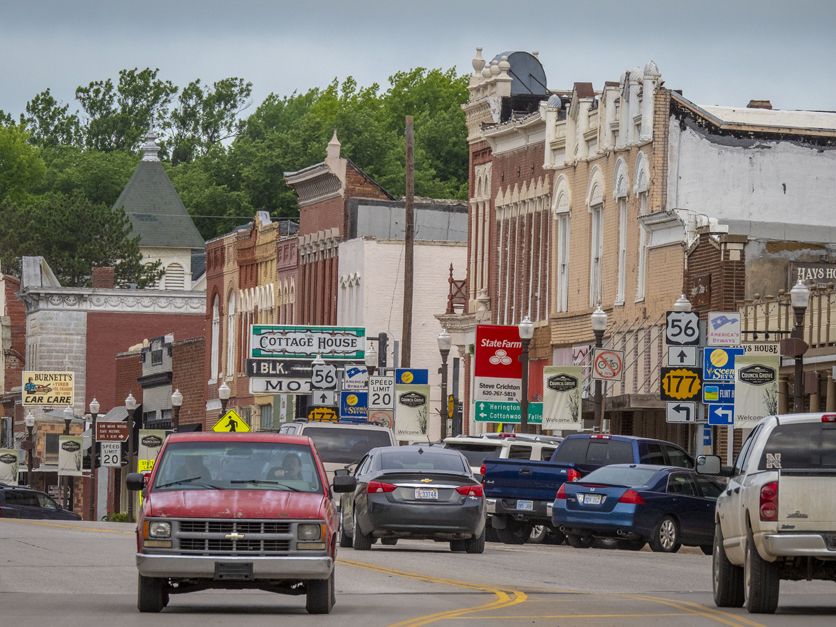The Small Business Administration ran out of money Thursday for the highly popular forgivable loans that livestock operations and other farms and businesses that have been applying for in droves to pay workers amid the COVID-19 crisis.
Talks continued Thursday on a White House request to add another $250 billion to the Paycheck Protection Program, which was created by the $2 trillion economic relief bill signed into law March 27. The program was funded with $349 billion.
According to SBA data, some $4.4 billion in loans had been approved as of Thursday to 46,334 businesses in the agriculture sector, which also includes forestry and hunting and fishing.
Senate Democrats blocked a GOP bill to replenish PPP on April 9, insisting that there were other needs in health care and elsewhere that were more dire at the time. President Donald Trump in a tweet Thursday said Democrats “are killing American small businesses. Stop playing politics Dems! Support Refilling PPP NOW — it is out of funds!”
But House Speaker Nancy Pelosi, R-Calif., said, “We don't have any disagreement about wanting to help small businesses. They would like to say that, but that isn't true."
A notice on the SBA website Thursday said: "The SBA is currently unable to accept new applications for the Paycheck Protection Program based on available appropriations funding."
Paul Kohls, chief lending operations officer for Compeer Financial, a Farm Credit institution that serves southern Minnesota, western Wisconsin and northern Illinois, has processed 1,300 loans worth $125 million, many of them for struggling dairy farms in the region.
After getting notice from SBA Thursday morning that the program was out of money, Compeer had to stop submitting applications for SBA approval, Kohls told Agri-Pulse. He said the lapse in funding would delay getting money to farms and other agricultural employers who need it.
“There’s been high demand, high interest. We’ve been successful in working with many, many clients in helping them take advantage of the program,” he said. “I suspect we will see more clients expressing interest and a need to participate in this program and we certainly hope there will be additional dollars.”
The program is designed to help businesses with under 500 employees to rehire or retain their workers during the slowdown. Businesses, including farms, can get a loan equal to 2.5 times their monthly payroll. The loan is forgiven as long as most of the money is used to pay workers. Otherwise, it has to be paid back at 1% interest.
There were initial questions about whether farms would qualify for the money, an issue settled only when SBA issued an interim final rule the night before the application process opened, then Farm Credit institutions and banks had trouble accessing the SBA computer system to process loans.
There also had been a question about whether farmers could use Schedule F farm income in calculating self-employment earnings for purposes of applying for a loan. SBA finally confirmed that Schedule F income was eligible, but only as the money was running out.
Some regional SBA officials also told farmers that they were ineligible for the program even though they were, said Rob Larew, president of the National Farmers Union.
Interested in more coverage and insights? Receive a free month of Agri-Pulse West by clicking here.
“While many farms have been deemed eligible ... the mixed messages coming out for the administration really made it unavailable to the vast majority of eligible farms to even take advantage of it,” Larew said.
Kohls, however, said the program has been a “really important lifeline” to Midwest dairy farms, whose processors in many cases have forced them to cut production. Another borrower was a swine and grain operation in Illinois that has had trouble marketing its hogs because of the shutdowns in meatpacking.
Texas Rep. Kevin Brady, the top Republican on the House Ways and Means Committee, told NBC News it’s critical to replenish the program as quickly as possible to address the needs to underserved communities that haven’t gotten money yet.
“All of this is focused on keeping their workers on the job or close to that business, helping that business ride this out so they’re ready to rebound,” Brady said. “We think the best way to do that is to keep those workers employed.
Karen Mills, who ran SBA during the Obama administration, told Roll Call that “Congress has to act as soon as possible" to fund the program. She said she had recently discussed PPP with Pelosi.
For more news, go to www.Agri-Pulse.com.


